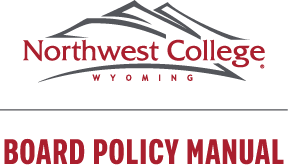To print please use PDF download.
I. Faculty Evaluation in General
The College predicates faculty evaluation on the following premises:
- That effective teaching is the paramount responsibility of faculty, and that no faculty member without a record of effective teaching shall be retained, tenured, or promoted.
- That probationary faculty are evaluated more often and more systematically than tenured faculty.
- That the College cannot entirely separate faculty evaluation and faculty development, even though there are significant differences.
- That the evaluative expectations of the faculty should be reasonable.
- That the faculty have primary responsibility for determining when they should stand for promotion.
- That the faculty have primary responsibility for keeping the College informed of their contributions, and are responsible for providing sufficient, current, and valid data in their Evaluative Files (Faculty would be well served to update their file at least once a year).
- That interactive, mutually agreed upon, methods of evaluation enhance the process.
- That the College, Division Chair, and the Committee for Faculty Development and Morale are responsible for assisting faculty members in their professional growth and development. In the case of nursing faculty, this role falls to the Director of Nursing and compliance with Wyoming State Board of Nursing requirements for nurse educators.
II. Purposes of Faculty Evaluation
Faculty Evaluation is primarily a tool to assist in the on-going improvement and growth in the teaching profession. The College selects, retains, and promotes faculty on the basis of their promise and demonstrated effectiveness as members of the teaching profession.
In considering faculty members for retention, tenure, or promotion, the College uses common areas of consideration to assist appropriate evaluating bodies and individuals to reach informed decisions.
The goal of faculty evaluation is to improve and assure the quality of teaching and student learning at the College. To reach this goal, the College shall assist in developing the teaching skills of faculty by providing opportunities, resources, and support systems. The College shall retain, tenure, and promote those who achieve excellence in teaching, who demonstrate a sustained level of quality service, and who continue to grow professionally.
III. Time Line for Evaluation
Non-tenured faculty are evaluated yearly by their Division Chair (see policy 3620 "Documents and Procedures Used for Evaluation"). Tenured faculty are evaluated by their Division Chair (see policy 3620 "Documents and Procedures Used for Evaluation") when they stand for promotion. Coaches, the Librarian, and the Director of Nursing (see policy 3610 "Evaluation of Specialty Faculty") have their own specialized evaluation procedures. In addition, all faculty shall have their teaching evaluated as described in policy 3300 "Faculty Responsibilities". Division Chairs, in consultation with the Vice President for Academic Affairs and/or the Dean of Extended Campus and Workforce, along with faculty input, may ask other Division Chairs for assistance in evaluating faculty.
Faculty are evaluated by the Rank and Tenure Committee for
- interim review in the fall semester of their third year;
- tenure and, if applicable, automatic promotion to Assistant Professor in the spring semester of their fifth year; and
- promotion in rank as specified in policy 3630 "Rank and Tenure Process".
IV. Criteria
Teaching effectiveness (see policy 3300 "Faculty Responsibilities"), academic service (see policy 3310 "Academic Service"), and professional development (see policy 3320 "Professional Development") are the three major areas of consideration used to evaluate a faculty member’s effectiveness and shall serve as a guide for self-evaluation.

